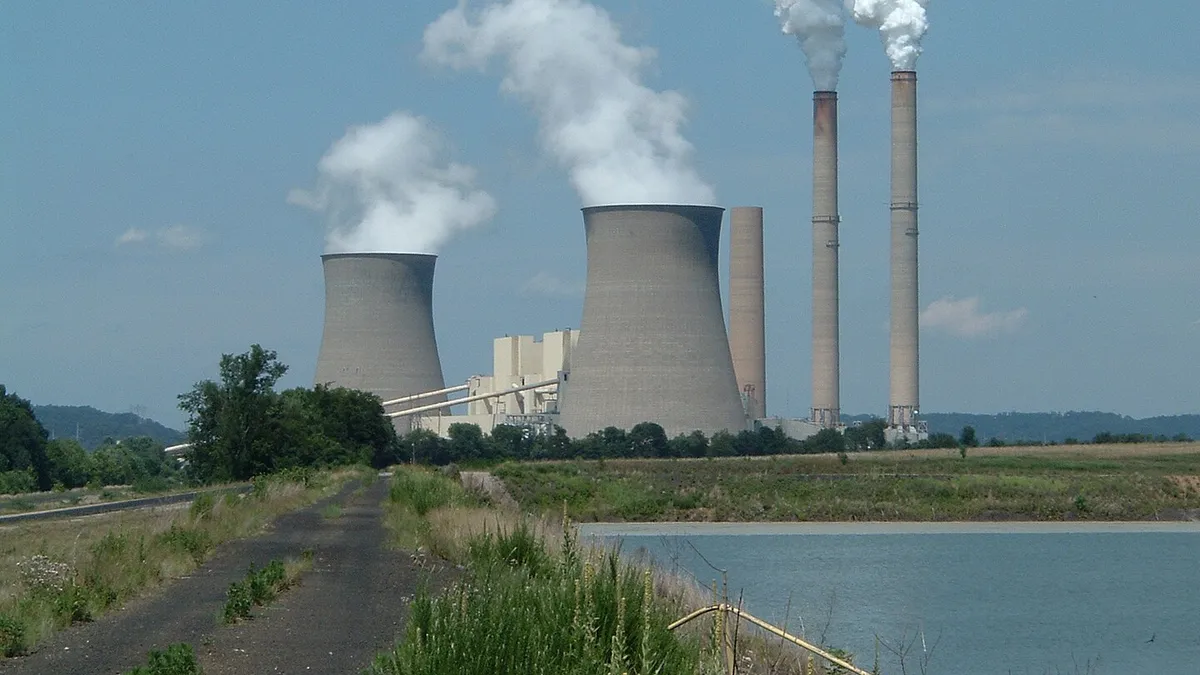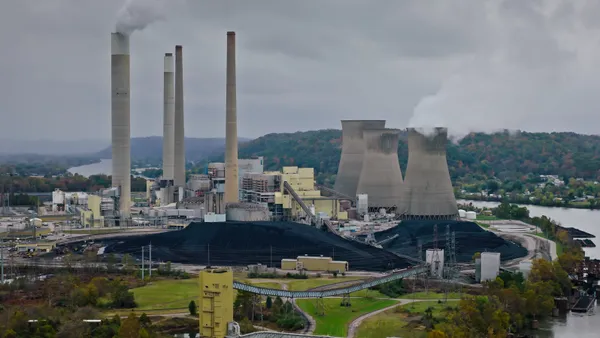Dive Brief:
- New U.S. Environmental Protection Agency rule targeting coal ash storage and disposal are now in effect, Energy Central reports, while more stringent regulation will be in effect next year.
- Introduced last year, the new regulations direct utilities to control "fugitive" ash and begin inspection of storage ponds, but stopped short of applying more stringent rules pushed by environmental organizations.
- The EPA's Steam Electric Power Generating Effluent Guidelines, not yet in effect, will set the first federal limits on toxic metals from ash in wastewater discharges from power plan as well as require utilities to perform more stringent safety testing on storage facilities.
Dive Insight:
The first set of coal ash regulations are now in effect, and while they didn't satisfy both sides when they were announced last year – both environmentalists and utilities had issues with the rules – advocates say they are a step in the right direction.
"We've already seen the beginning of utilities starting to comply with the regulations," Earthjustice attorney Lisa Evans told Energy Central.
Advocates were upset last year when the rule failed to classify coal ash as "hazardous waste," instead using a lower standard of solid waste. "The rule is a weak rule," Evans said, "but it is a national rule that all utilities must comply with. This is a small step forward, and we're better off than we were last year. But there's a lot of work to be done."
Beginning immediately, utilities must develop public plans to handle coal ash that is dispersed during transport, as well as behind inspections of coal ash storage ponds. In the next two years as more rigorous standards go into effect, utilities will need to determine if existing ponds meet tighter standards and and how to complete groundwater protection efforts.
In addition to governing toxic metals from coal ash, the new EPA rule will cover power plant scrubbers that reduce air pollution from coal plants but release wastewater high in metals.
Georgia Power already announced its move to shutter 29 ash disposal ponds to comply with both sets of regulations within the next six months. The utility said its reliance on gas and renewables has expanding, tamping down on its production of coal ash and other byproducts.
And Duke Energy settled the North Carolina coal ash case last month for a state record of $7 million to be paid to state environmental regulators on top of $102 million already paid in fines and penalties.















